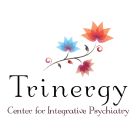ADHD or Stimulant Addiction?
“Score Trinergy!” ?
I just met with a new patient who I am seeing for iatrogenic (meaning doctor or treatment induced) stimulant addiction. IMHO, this patient does not have ADHD but has head trauma related focus/concentration difficulties. But 5 years ago (at age 21) the patient was started on stimulants with a superficial diagnosis of ADHD (despite having no such history in childhood). (This is yet another example of pharma pushing the idea that Adult ADHD is a valid diagnosis and all these adults need to be treated with stimulants. oh, save the poor adults who were not recognized as ADHD patients when they were children!).
Initially, the meds seemed to be the answer to these problems but within 2 years, the patient developed an addiction to them. The patient lost their sense of self, of who they are! This patient tried to get off the meds cold turkey earlier this year and was able to remain drug free for 2 months but the fatigue, craving, cognitive difficulties, etc made it impossible for the patient to function. So the patient went back to their prior psychiatrist and was put back on the same Vyvanse and on top of it, an immediate release stimulant med for the afternoon!!!
The patient felt very hopeless and felt like their life was over with this approach. Luckily, the patient’s mom found me and I evaluated this young person.
I used the functional medicine and Ayurveda lens to understand this patient’s symptoms and it screamed mitochondrial damage to me. Never before in my training as a psychiatrist or in practice, was I ever taught about the effects of stimulants on mitochondria (the energy producing organelles that live within every cell in our body). I knew of the dopamine enhancing effect and the subsequent dopamine deficiency which is commonly experienced as the “crash.” But in understanding the symptoms from a functional medicine/Ayurveda lens (which is really listening to the body’s language of symptoms), I felt this patient is suffering from extensive mitochondrial damage.
So, I searched pubmed.org with the key words, “stimulant use, mitochondrial damage,” and lo and behold, my hunch proved to be right.
These drugs (stimulant class of medicines) indeed cause oxidative damage on various tissues in the body – brain tissue, immune cells, etc and specifically cause mitochondrial oxidative damage. Thus causing fatigue, poor focus/conc symptoms which is not related to the dopamine levels at all. It is important to recognize this pathway of damage that is completely independent of dopamine transmission – the main hypothesis (unproven, btw) for ADHD and related conditions.
I am so hopeful for this patient now. We have the “why” for the problems and so this will lead us to treatment. Broadly, “mitochondrial rejuvenation”. Which will depend on nutrient dense diet and detoxification. Functional medicine will guide us regarding the specific nutrients to provide for his mitochondria. Ayurveda will guide us for detoxification and rejuvenation (or Rasayana) with the use of specific herbs and therapy techniques like Abhyanga massage, Swedana (herbal steam sauna) and Panchakarma (Ayurvedic detox). Did you know that there is a natural herb used for thousands of years in Ayurveda that can gently stimulate dopamine neurons to function optimally? It’s called kapikachu and has been used for various health conditions. This herb will prove useful in this patient’s treatment as we taper the stimulant and train his dopamine neurons to function normally again.
Finally, psychotherapy to help this patient understand this life experience and incorportae its meaning; will be the icing on this cake!
And what about the root cause, I am suspecting – the head trauma? Actually, the same treatment (diet and detoxification) will address the effects of the head trauma as well!
I am hoping to document this patient’s journey of recovery in a video testimonial in the coming months.
Here are the articles I found. Full article sources:

